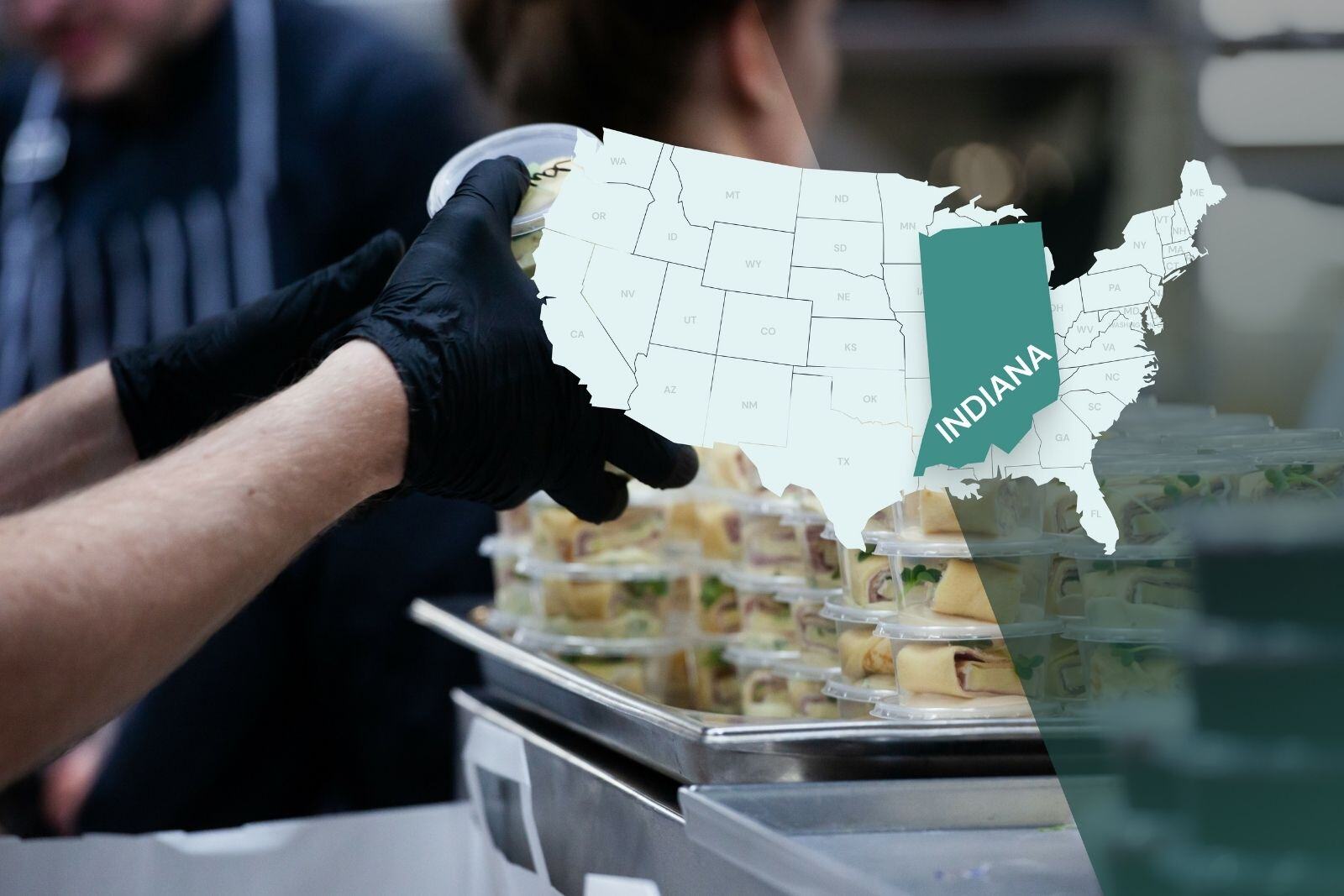From the state fair to sporting events, Hoosiers know how to have a good time–and enjoy a hearty Midwestern meal along the way. However, no one would enjoy these meals or activities if a foodborne illness were to strike!
Foodborne diseases are more common than you think. In fact, the World Health Organization estimates that one in ten people worldwide contracts a foodborne illness each year.1
Statistics like that can make you wonder who is responsible for preventing foodborne illness outbreaks! Read on to learn who is responsible for food safety in Indiana foodservice establishments.
In this blog, we’ll answer questions such as:
Which version of the FDA Food Code does Indiana use?
Does Indiana require food handler training?
Does Indiana require allergen awareness training?
Does Indiana require food manager certification?
Which version of the FDA Food Code does Indiana use?
The Food and Drug Administration (FDA) Food Code provides the United States with food safety recommendations. However, these guidelines are simply a framework.
States can choose which recommendations become official requirements–and in some cases, counties and cities can do the same. That means that states, counties, and even cities determine the food safety training and certification requirements for restaurants and other foodservice establishments.
The FDA Food Code is updated every two years, but that doesn’t mean states must update their regulations on the same schedule. For example, Louisiana, New York, and Vermont crafted food safety regulations based on the 2001 version of the FDA Food Code.2,3
As of April 16, 2025, the Indiana Department of Health updated its Retail Food Establishment Sanitation Requirements to reflect the recommendations outlined in the 2022 FDA Food Code.
The most impactful changes fall under five categories: definitions; employee health and hygiene; food; equipment and facility requirements; and compliance and enforcement. You can read a summary of the top changes in this document from the Department of Health.
If you work in the food industry in Indiana, keep reading for a summary of your state's training and certification requirements.
Does Indiana require food handler training?
No, if you’re a food worker in Indiana, you are not required to earn a food handler card or certificate. However, potential employers may be more interested in your resume if you’ve recently completed an accredited food handler training!
Does Indiana require allergen awareness training?
No, formal food allergen awareness training is not required in Indiana. However, the chances of serving a customer with a food allergy are higher than ever–do you feel prepared to help someone experiencing anaphylaxis? If the answer is no, you may want to take an allergen awareness course ASAP.
Does Indiana require food manager certification?
Yes, many food establishments must have at least one certified food protection manager (CFPM) responsible for food safety. However, a CFPM does not need to be present during all hours of operation unless otherwise stated by the local health department.4 You can earn your credentials by passing a certification exam accredited by the ANSI National Accreditation Board (ANAB) and the Conference for Food Protection (CFP).
Establishments are not required to have a CFPM on staff if food handling activities do not include cooking raw foods of animal origin or are limited to one or more of the following:
-
Heating or serving pre-cooked foods;
-
Preparing or serving a continental breakfast;
-
Preparing or serving beverages or ice;
-
Preparing or serving packaged or unpackaged low-hazard foods;
-
Providing prepackaged food in its original package.4
Even if your establishment is not required to have someone on staff with CFPM credentials, there must be a "person in charge" (PIC) present at all hours of operation and able to demonstrate to the regulatory authority knowledge of foodborne disease prevention, application of the HACCP principles. Maintaining credentials as a food protection manager can help an establishment's PIC meet this requirement.
What happened to Indiana’s certified food handler requirements?
If you’ve worked in Indiana’s food scene for a long time, you may wonder what happened to the requirements for Certified Food Handlers (CFH).
Technically, the requirement didn’t go anywhere–the name simply changed to CFPM.
In 2020, the Indiana legislature passed the House Enrolled Act 1210 (HEA 1210). The two most notable updates included clarifying which food establishments must have a CFPM and renaming “Certified Food Handlers” as “Certified Food Protection Managers.”
The shift to “CFPM” helped to make Indiana’s guidelines more consistent with nationally recognized terminology and to eliminate confusion over similarly named, differing levels of food safety credentials.4
The takeaway
Foodborne illnesses are extremely common, and it is hard work to keep them at bay. Indiana does not require food handler or allergen awareness training for all workers; instead, the state places the responsibility of food safety on certified food protection managers. However, it is critical to public health that all foodservice professionals stay on top of current food safety best practices. Staying informed and being proactive will help you keep the focus on fun and flavor–not the fallout from a foodborne illness.
**Editor's Note:This blog was originally posted in September 2024 and updated to reflect recent changes to the Indiana Retail Food Code.
Sources
-
World Health Organization: Estimating the burden of foodborne diseases
-
FDA: 2001 Food Code
-
Indiana State Department of Health: Memo - HEA 1210 – Certified Food Protection Manager





.png)

.png)
